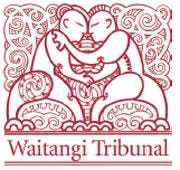Legislation Undermines Waitangi Tribunal
How the Treaty Principles Bill Could Silence the Tribunal’s Work on Contemporary Māori Claims
The Treaty Principles Bill, if passed, would fundamentally alter the jurisdiction and founding purpose of the Waitangi Tribunal.
It would transform the Tribunal from an organisation tasked with investigating contemporary breaches of Māori rights and interests to one mandated to ensure that iwi and hapū hold no specific rights beyond those defined in historic Treaty settlements.
This shift would utterly undermine the Tribunal’s explicit purpose which is to address both past and present-time injustices.
Established in 1975, the Waitangi Tribunal was initially empowered to investigate only contemporary breaches of Treaty principles committed by or on behalf of the Crown occurring after 1975.
In 1986, the Tribunal’s scope was expanded to allow retrospective investigations into historical breaches dating back to 6 February 1840. Later, all historical claims were required to be lodged by 2008.
The Tribunal has become known for these historical inquiries, which have not only informed Treaty settlements with iwi across the country but have also provided a vital public record of history. They have been an example globally of how effective and constructive outcomes can be made through the recognition and reconciliation of past wrongs by states towards indigenous people.
However, historic Treaty settlements are just that – settlements for historic breaches of the Treaty principles. Their value is around 1-2% of that which was lost. They have never been intended to displace current and future adherence to te Tiriti – the foundational agreement that was signed in 1840 and did not contain an expiry date.
The Tribunal’s jurisdiction includes considering claims from Māori who assert prejudice resulting from acts or omissions by or on behalf of the Crown that are inconsistent with the Treaty principles. The current Treaty principles are drawn from both te Tiriti o Waitangi (the Māori text which was debated and signed) and the English draft. They have been clearly articulated by the courts and the Waitangi Tribunal, and are intended to encapsulate the essence of both texts and the spirit of the agreement between the Crown and rangatira and hapū.
Since 2008, the only claims that can be lodged with the Tribunal are those pertaining to contemporary Crown actions or omissions that occurred on or after 21 September 1992. In other words, the Tribunal’s secondary role of inquiring into historical claims will eventually wind up as those claims are heard and settled, and its initial core function remains.
If enacted without changes to the Tribunal’s founding legislation, the Treaty Principles Bill would render the Tribunal’s scope for contemporary claims nonsensical. Its mandate with contemporary breaches of the Treaty principles would instead be to investigate claims by Māori who were claiming prejudice because Māori were being allowed rights that differ from those afforded to all New Zealanders.
This has no basis in te Tiriti, and beyond changing the legal interpretation of te Tiriti, is also a significant recasting of the role of the Tribunal – one that is only likely to enable Crown breaches, generate disharmony and drive inequity, rather than help resolve wrongs committed by governments, both past and present.
Legislation requires that the membership of the Tribunal is based on consideration of the partnership between the two parties to the Treaty, along with each appointee’s attributes, and knowledge and experience of matters likely to come before the Tribunal.
If future claims focus on breaches of the new “Treaty principles”, as they legally must if the Treaty Principles Bill becomes law, the Tribunal’s membership could shift towards those with expertise in assimilation and the denial of indigenous rights, rather than those with a background in te Tiriti and upholding indigenous rights.
Indeed, the recent appointment of former ACT Party leader Richard Prebble to the Waitangi Tribunal may have been the start of such a trend. David Seymour celebrated the appointment saying, “ACT looks forward to his contributions in ensuring that the Treaty of Waitangi is interpreted and applied in a manner that reflects what it actually says, including the promise of the same rights and duties for all New Zealanders.”
Given that this is not what the Treaty OR te Tiriti actually says, ACT seems to be looking forward to a false interpretation of the Treaty being applied through the Waitangi Tribunal, before the Treaty Principles Bill has even made it into law. This is a phenomenon more suited to the divisive politics of Trump's America than the relational, pragmatic, solution-based environment that has been part of New Zealand's way of dealing with the Crown's significant and ongoing wrongdoing towards Māori.
It would put at risk long decades of work to bring to progress reconciliation and rightful co-existence in Aotearoa New Zealand, and to right the inequities Māori experience due to both colonisation and current government policies. This is unacceptable and would create huge liabilities for the Crown that would have to be addressed in future. It would also undoubtedly lead to significant litigation and uncertainty.
In its current form, the Waitangi Tribunal has been instrumental in developing the Treaty principles and making recommendations to the Crown about recognising Māori rights and progressing reconciliation.
However, if the Treaty Principles Bill is enacted, it would restrict the Tribunal’s capacity to fulfill this essential function, potentially leaving the future of Māori rights in the hands of a body tasked with enforcing a vision of assimilation rather than protection.
All who are committed to truth and justice must speak up against the Treaty Principles Bill to ensure the Tribunal’s role remains aligned with the spirit of the Treaty, fairness for our indigenous people and thriving for all who call Aotearoa home.





